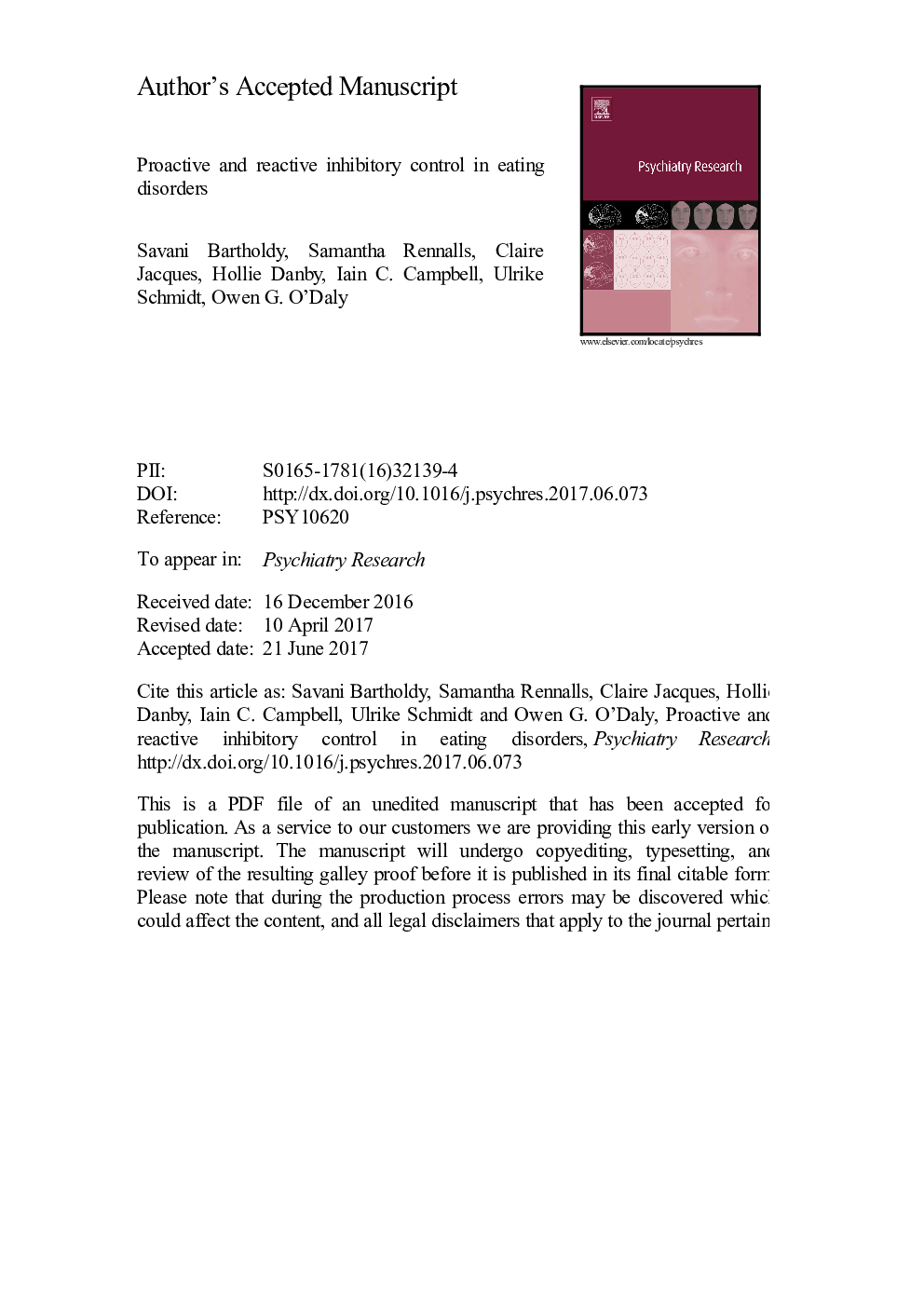| Article ID | Journal | Published Year | Pages | File Type |
|---|---|---|---|---|
| 4933227 | Psychiatry Research | 2017 | 17 Pages |
Abstract
Altered inhibitory control has been implicated in the development and maintenance of eating disorders (ED), however it is unclear how different types of inhibitory control are affected across the EDs. We explored whether individuals with bulimia nervosa (BN), binge eating disorder (BED) and anorexia nervosa (AN) differed from healthy individuals (HC) on two types of motor inhibitory control: proactive inhibition (related to the preparation/initiation of a response) and reactive inhibition (withholding a response in reaction to a signal). Ninety-four women (28 AN, 27 BN, 11 BED, 28 HC) completed two neuropsychological tasks (a cued reaction time task and a stop signal task), and questionnaires assessing clinical variables, mood, anxiety, and inhibitory control. Self-reported inhibitory control was poorer in women with BN compared to the HC and AN groups, but greater in women with AN compared to all other groups. However, no group differences in reactive inhibition were observed. Proactive inhibition was augmented in women with AN compared to HC, and this was related to self-reported intolerance of uncertainty. The findings suggest that proactive inhibition may be a relevant target for behavioural interventions for AN, and call for further research into the relationship between intolerance of uncertainty and proactive inhibition.
Related Topics
Life Sciences
Neuroscience
Biological Psychiatry
Authors
Savani Bartholdy, Samantha J. Rennalls, Claire Jacques, Hollie Danby, Iain C. Campbell, Ulrike Schmidt, Owen G. O'Daly,
